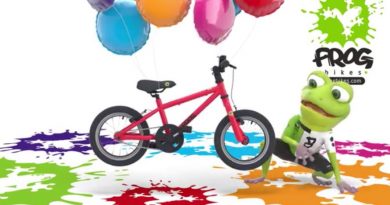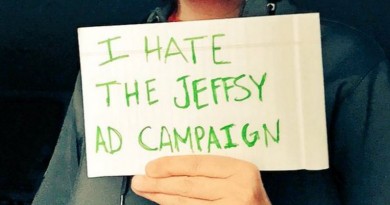Cycling campaign to lead with unsustainable stat: “60% of 1 to 2 mile journeys are driven”
The bike industry-backed Cycling Marketing Board will lead a spring/summer campaign with the shock tactic message that 60% of short journeys (between 1 and 2 miles) are driven, calling on people to consider doing their bit to collectively address congestion, pollution and climate issues.
Having already put the DfT data finding to focus groups with the help of qualitative research expert Terry Watkins of TWResearch, the feedback is one of surprise and horror, according to the CMB. Five online focus group sessions were held in London, Manchester, Birmingham and Norwich.
Set to launch later in April, the campaign will ask consumers are you using “the best tool for the job”, using illustrations to demonstrate how society at large is using a sledgehammer to crack a nut by habitually turning to the car for journeys that very often do not require such a large nor polluting vehicle. There will be emphasis that any bike is suitable for short journeys and that specialist gear is not essential to get started.
Campaign Consultant Bruce Sandell, said: “We are delighted to launch our Spring Summer 2021 campaign, Terry Watkin’s Research has given us great insight into a wide variety of consumers, their opinions on cycling and what would make them change their habits. This will inform our creative and strategy for the remainder of 2021 and beyond. We continue to welcome more brands to join the campaign, get involved, support the campaign and to get more people riding bikes, more often.”
Among the other findings from the focus group sessions, the researchers concluded that many people are still viewing cycling only as a leisure activity, rather than a means of transport.
Ironically, anxiety about traffic remains a leading barrier to leaving the car at home, but the researchers also found a lingering perception that to ride a bike you must have a plethora of specialist gear.
A primary motivation to begin cycling among the groups was to get healthy, though it was found these efforts are often easily postponed. Concerns about the environment were not found to translate into actions.
It is therefore suggested that bike industry marketing efforts should, with empathy to lived reality, move to normalise cycling for short utility purposes; a message that some brands have recently delivered in spectacular fashion.
According to research found within CyclingIndustry.News’ annual market report (available to purchase in full here), 75% of bike shops wish to see industry marketing spend prioritised for targeting non-cyclists and 45% towards women. Just 15% felt that more marketing to existing enthusiasts was a good use of funds.
The Cycling Marketing Board is backed by a collective of industry bicycle brands, advocacy groups and service providers who all share the common goal to see the bicycle form a greater part of the transport picture in the face of societal challenges. To join the effort, email organiser Adam Tranter here.



